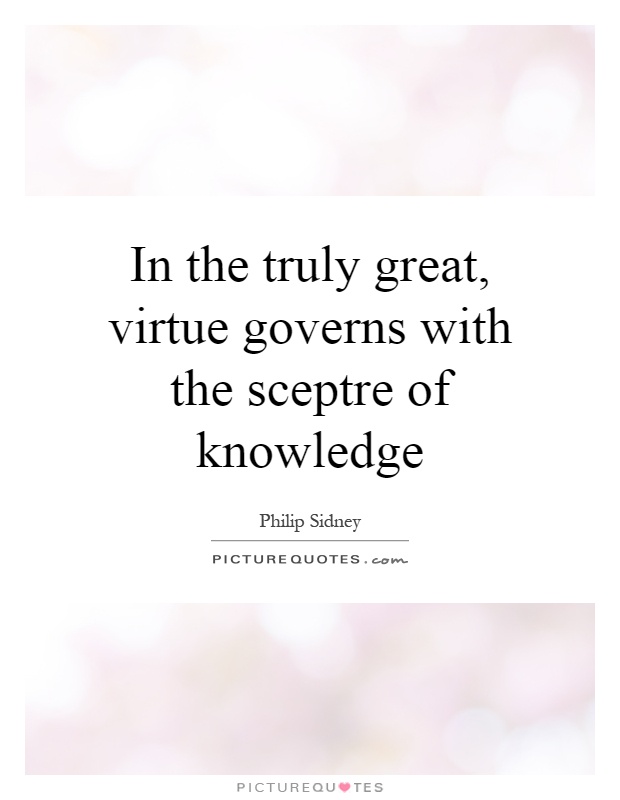In the truly great, virtue governs with the sceptre of knowledge

In the truly great, virtue governs with the sceptre of knowledge
Sir Philip Sidney was a prominent figure in the Elizabethan era, known for his chivalrous demeanor, literary prowess, and unwavering commitment to virtue. His works, such as the sonnet sequence Astrophil and Stella and the prose romance Arcadia, reflect his belief in the power of virtue to guide one's actions and decisions. In his writings, Sidney often explores the relationship between virtue and knowledge, arguing that true greatness can only be achieved when virtue governs with the scepter of knowledge.The phrase "In the truly great, virtue governs with the scepter of knowledge" encapsulates Sidney's belief that true greatness is not merely a matter of external accomplishments or accolades, but rather a reflection of one's inner character and moral integrity. For Sidney, virtue is the foundation upon which all other qualities must be built, and knowledge is the tool through which virtue can be cultivated and applied in the world.
In his essay "The Defence of Poesy," Sidney argues that literature has the power to educate and inspire readers, leading them to a deeper understanding of themselves and the world around them. Through the careful study of literature, individuals can gain knowledge of the virtues that lead to true greatness, such as courage, wisdom, and compassion. By internalizing these virtues and allowing them to guide their actions, individuals can achieve a sense of moral and spiritual fulfillment that transcends mere worldly success.
Sidney's own life exemplified the principles he espoused in his writings. As a courtier, soldier, and diplomat, he conducted himself with honor and integrity, earning the respect and admiration of his peers. His commitment to virtue and knowledge was evident in his interactions with others, as well as in his literary works, which continue to inspire readers to this day.












 Friendship Quotes
Friendship Quotes Love Quotes
Love Quotes Life Quotes
Life Quotes Funny Quotes
Funny Quotes Motivational Quotes
Motivational Quotes Inspirational Quotes
Inspirational Quotes